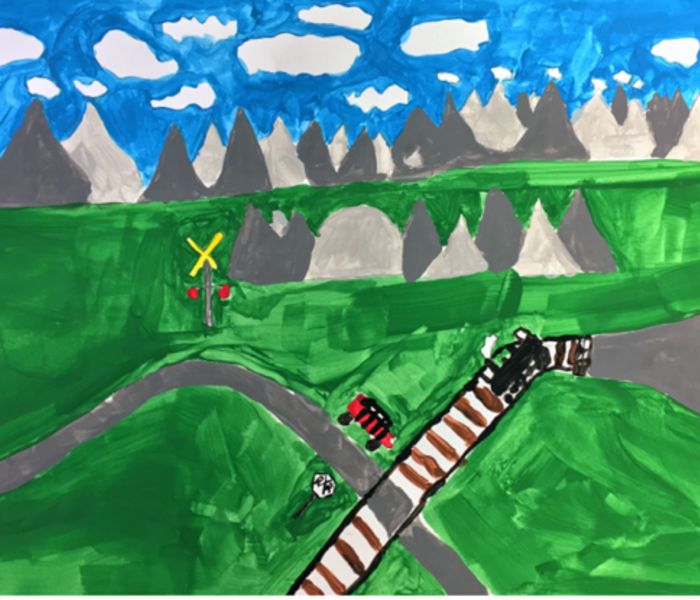
Rail Safety Week 2020
September 21, 2020

Operation Lifesaver, Inc. (OLI), the national rail safety education nonprofit, works in partnership with the U.S. Department of Transportation and other organizations to observe Rail Safety Week (RSW) each year.
The goal of Rail Safety Week is to raise awareness of the need for rail safety education and empower the general public to keep themselves safe near highway-rail grade crossings and railroad rights-of-way. Join us in observing Rail Safety Week this year from Monday, September 21, 2020 through Sunday, September 27, 2020!
Current Federal Railroad Administration (FRA) data shows that highway-rail grade crossing collisions and pedestrian trespass on tracks together account for over 95% of all railroad fatalities.
According to preliminary statistics, the Federal Railroad Administration recorded more than 2,200 highway-rail grade crossing collisions and almost 293 rail trespass casualties and 807 injuries in the United States in 2019. In Pennsylvania, there were 65 collisions, 6 deaths, and 15 injuries.
If you think you can listen for the sound of a train to know when to clear the tracks, think again.

DID YOU KNOW?
According to the National Highway Traffic Safety Administration (NHTSA) at U.S. DOT:
Three out of four crashes occur within 25 miles of a motorist's home. Fifty percent of all crashes occur within five miles of home.
A calculation of NHTSA statistics on the rate of deaths per collision in vehicle/vehicle crashes versus the FRA statistics of deaths per collision in vehicle/train crashes reveals:
A motorist is almost 20 times more likely to die in a crash involving a train than in a collision involving another motor vehicle.
You should NEVER drive onto the tracks at a grade crossing unless you have ample space to pull ahead.
Track Safety Basics:
-
Freight trains don't travel at fixed times, and schedules for passenger trains often change. Always expect a train at each highway-rail intersection at any time.
-
All train tracks are private property. Never walk on tracks; it's illegal trespass and highly dangerous. It takes the average freight train traveling at 55 mph more than a mile—the length of 18 football fields—to stop. Trains cannot stop quickly enough to avoid a collision.
-
The average locomotive weighs about 400,000 pounds or 200 tons; it can weigh up to 6,000 tons. This makes the weight ratio of a car to a train proportional to that of a soda can to a car. We all know what happens to a soda can hit by a car.
-
Trains have the right of way 100% of the time over emergency vehicles, cars, the police and pedestrians.
-
A train can extend three feet or more beyond the steel rail, putting the safety zone for pedestrians well beyond the three foot mark. If there are rails on the railroad ties, always assume the track is in use, even if there are weeds or the track looks unused.
-
Trains can move in either direction at any time. Sometimes its cars are pushed by locomotives instead of being pulled, which is especially true in commuter and light rail passenger service.
-
Today's trains are quieter than ever, producing no telltale "clackety-clack." Any approaching train is always closer, moving faster, than you think.
-
Remember to cross train tracks ONLY at designated pedestrian or roadway crossings, and obey all warning signs and signals posted there.
-
Stay alert around railroad tracks. Refrain from texting, headphones or other distractions that would prevent you from hearing an approaching train; never mix rails and recreation.
The Authority’s System Safety Department also makes Operation Lifesaver rail safety presentations to students from kindergarten through high school and to a wide variety of audiences such as hearing and visually impaired adults, driver’s education students, emergency responders and professional drivers. SEPTA offers the presentations free of charge to school and community groups. For more information about SEPTA safety and to download PDFs of safety tips for all SEPTA modes, click here.
For information about SEPTA’s Operation Lifesaver presentations, and to schedule a presentation, call 215-580-7800. For more information about Rail Safety Week, click here.



